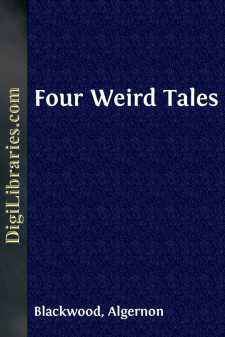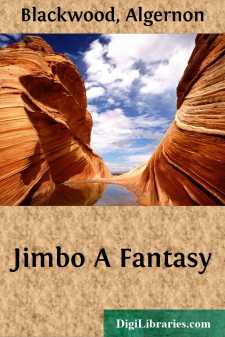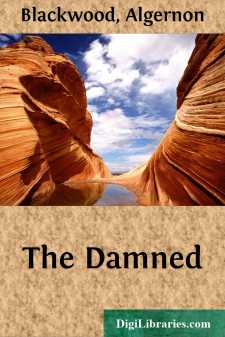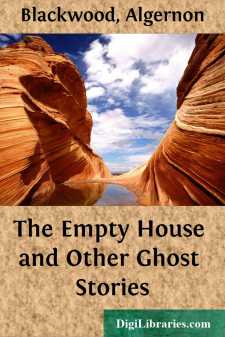Categories
- Antiques & Collectibles 13
- Architecture 36
- Art 48
- Bibles 22
- Biography & Autobiography 813
- Body, Mind & Spirit 142
- Business & Economics 28
- Children's Books 15
- Children's Fiction 12
- Computers 4
- Cooking 94
- Crafts & Hobbies 4
- Drama 346
- Education 46
- Family & Relationships 57
- Fiction 11828
- Games 19
- Gardening 17
- Health & Fitness 34
- History 1377
- House & Home 1
- Humor 147
- Juvenile Fiction 1873
- Juvenile Nonfiction 202
- Language Arts & Disciplines 88
- Law 16
- Literary Collections 686
- Literary Criticism 179
- Mathematics 13
- Medical 41
- Music 40
- Nature 179
- Non-Classifiable 1768
- Performing Arts 7
- Periodicals 1453
- Philosophy 64
- Photography 2
- Poetry 896
- Political Science 203
- Psychology 42
- Reference 154
- Religion 513
- Science 126
- Self-Help 84
- Social Science 81
- Sports & Recreation 34
- Study Aids 3
- Technology & Engineering 59
- Transportation 23
- Travel 463
- True Crime 29
Algernon Blackwood
Algernon Blackwood (1869–1951) was a British author renowned for his ghost stories and tales of the supernatural. His works, such as "The Willows" and "The Wendigo," are celebrated for their atmospheric and psychological depth, earning him a reputation as one of the finest writers in the horror genre. Blackwood also had diverse interests, including broadcasting, journalism, and nature exploration, which often influenced his storytelling.
Author's Books:
Sort by:
CHAPTER I Man is his own star; and the soul that can Render an honest and a perfect man Commands all light, all influence, all fate, Nothing to him falls early, or too late. Our acts our angels are, or good or ill, Our fatal shadows that walk by us still. BEAUMONT AND FLETCHER. Minks—Herbert...
more...
The Insanity of Jones I Adventures come to the adventurous, and mysterious things fall in the way of those who, with wonder and imagination, are on the watch for them; but the majority of people go past the doors that are half ajar, thinking them closed, and fail to notice the faint stirrings of the great curtain that hangs ever in the form of appearances between them and the world of causes behind....
more...
"RABBITS" Jimbo's governess ought to have known better—but she didn't. If she had, Jimbo would never have met with the adventures that subsequently came to him. Thus, in a roundabout sort of way, the child ought to have been thankful to the governess; and perhaps, in a roundabout sort of way, he was. But that comes at the far end of the story, and is doubtful at best; and in the...
more...
I "We may be in the Universe as dogs and cats are in our libraries, seeing the books and hearing the conversation, but having no inkling of the meaning of it all." —WILLIAM JAMES, A Pluralistic Universe "… A man's vision is the great fact about him. Who cares for Carlyle's reasons, or Schopenhauer's, or Spencer's? A philosophy is the expression of a man's...
more...
Chapter I "I'm over forty, Frances, and rather set in my ways," I said good-naturedly, ready to yield if she insisted that our going together on the visit involved her happiness. "My work is rather heavy just now too, as you know. The question is, could I work there—with a lot of unassorted people in the house?" "Mabel doesn't mention any other people, Bill," was my...
more...
THE EMPTY HOUSE Certain houses, like certain persons, manage somehow to proclaim at once their character for evil. In the case of the latter, no particular feature need betray them; they may boast an open countenance and an ingenuous smile; and yet a little of their company leaves the unalterable conviction that there is something radically amiss with their being: that they are evil. Willy nilly, they...
more...
CHAPTER I THE MATERIAL Judy, Tim, and Maria were just little children. It was impossible to say exactly what their ages were, except that they were just the usual age, that Judy was the eldest, Maria the youngest, and that Tim, accordingly, came in between the two. Their father did his best for them; so did their mother; so did Aunt Emily, the latter's sister. It is impossible to say very much...
more...
IT will surprise and at the same time possibly amuse you to know that I had the instinct to tell what follows to a Priest, and might have done so had not the Man of the World in me whispered that from professional Believers I should get little sympathy, and probably less credence still. For to have my experience disbelieved, or attributed to hallucination, would be intolerable to me. Psychical...
more...
Chapter I I As a boy he constructed so vividly in imagination that he came to believe in the living reality of his creations: for everybody and everything he found names—real names. Inside him somewhere stretched immense playgrounds, compared to which the hay-fields and lawns of his father's estate seemed trivial: plains without horizon, seas deep enough to float the planets like corks, and...
more...
~I~ He painted trees as by some special divining instinct of their essential qualities. He understood them. He knew why in an oak forest, for instance, each individual was utterly distinct from its fellows, and why no two beeches in the whole world were alike. People asked him down to paint a favorite lime or silver birch, for he caught the individuality of a tree as some catch the individuality of a...
more...











